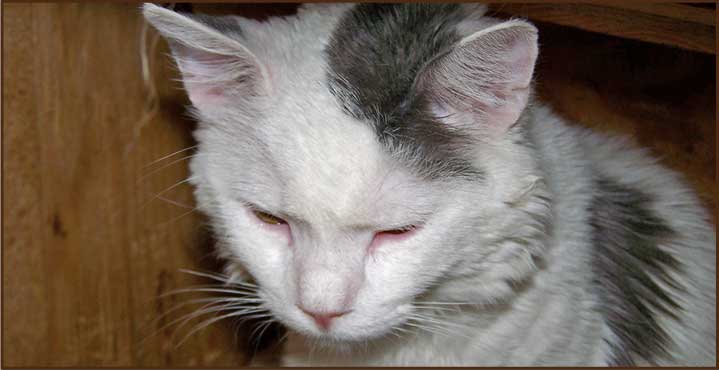T-Cyte Treatment is treating cats who have FeLV and/or FIV with Lymphocyte T-Cell Immunomodulator. T-Cyte Therapeutics is the name of the manufacturer who supply vets with this expensive treatment. They are not very open about its success rate and cost etc.. It is difficult to find information on whether it works and whether the high cost is worthwhile. It is a USDA-approved treatment and it is also called: LTCI. The drug is designed to help to restore a cat’s ability to fight infection.

Some time ago Elisa wrote about modern treatments for these nasty and major feline diseases. She included T-Cyte. This is a quick follow up to see if the internet could throw up indications that it has proved effective.
Regrettably, as far as I can tell, it is still unclear whether it works consistently or at all. There is some anecdotal evidence from cat owners that it has worked or at least their cat’s health appears to have improved:
“I was skeptical at first, especially since T-Cyte has a very firm grip on their PR, it’s difficult to find information that is not provided by the company itself, but I’d say if you are running out of options, it is worth a try. We started seeing significant improvement in her health after about 3 shots.” (EECBrooklyn — Catsite.com)
This person’s comment reflects my feelings about this treatment. These diseases are the sort in which options can run out.
The Yahoo Group on FeLV positive cats state this:
There are immune system treatments that change 44% of feline leukemia positive cases negative!! — I don’t know whether they are referring to T-Cyte treatment but they give hope.
Another group felineleukemia.org do mention T-Cyte treatment but do not comment on how good it is. They refer to a company other than T-Cyte Therapeutics, which is called IMULAN BioTherapeutics, LLC who also produce a drug that appears to be similar or the same as T-Cyte. They describe it as:
“T-Cell Receptor (TCR) peptide immune modulators, for veterinary medicine.”
The science is baffling to the public and there is little information about effectiveness of this drug. On their website under a heading “Feline Studies”, the company states: “Coming soon”. Ah, well, we don’t know as yet how good it is. The company is based in Arizona, USA.
My personal conclusion is that the jury is out on the effectiveness of this treatment for FeLV. If you are desperate and feel you have to try it as a last resort, it is probably worth a go. One veterinary customer states that he paid $90 per shot (Catsite.com).


Thanks a lot, Susan, for sharing your experience. I’d love to hear back from you in a few months to see if it has been successful. Could you update us later on? Good luck by the way.
Hi! In know this discussion is pretty old, but thought I’d send in a message, just in case anyone has updated info. I just started my 4-month old kitten on LTCI this past Saturday. Overall she seems pretty healthy; she just keeps getting reoccurring URIs and tested positive for FeLV. The vet I’m taking her to said she’s treated a few other cats with LTCI, but didn’t really have any results one way or the other (pros/cons), due to a lack of follow up from the cat’s owners. Her recommendation was to start my kitten on the LTCI now though while she’s still relatively healthy, as she would have a better chance of it working if she was relatively healthy. The cost is $75 per shot and she is getting 3 shots in the series (days 0, 7 & 14) and then monthly or bi-monthly after that depending on the kittens health and progress.
I’m not really sure if it’ll work and haven’t found much info about this product online, which is odd considering it’s been around since 2006 (over 12 years now). I contacted the company (T-Cyte) to see if they had any updated publications or results, but received just a generic email back saying that all their reports are on file with the USDA for Veterinary Biologics. That wasn’t really helpful to the general public who are the ones trying to find out if this the right product for their cat and who, you would think, are their main customer/targeted audience. However, despite the lack of helpful results or statistics, I’m still quite curious to see if this will help my kitten and I am willing to do whatever I can to try to extend her life as much as I can, just as long as it’s in her best interest and not harmful.
If anyone has any updated information or the results of this product after 12 years worth of existence, please let me know. Thanks!
Thanks for posting Anne. Your comment was checked before being published hence the delay. I hope you receive a response.